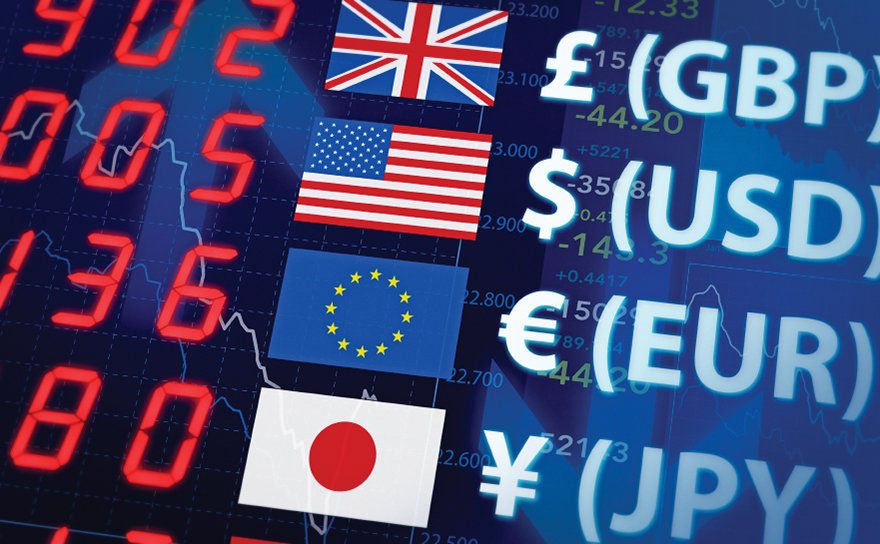News
Coronavirus and the pound: Everything you need to know

It’s been a rocky ride for Sterling since the coronavirus pandemic took hold. Just before lockdown it fell to its lowest level against the dollar since 1985, as the spread of the virus pandemic spooked investors.
Back in mid-March £1 was only worth $1.14 – now it’s worth about $1.25.
The pound also fell against the Euro when the pandemic hit. On 23 March, the day lockdown was announced, £1 was worth just €1.07.
It wasn’t much higher in the last week of June when the pound hit a new three-month low of €1.09, in response to both renewed Brexit jitters and fears of a second wave of coronavirus infections.
£1 is currently worth about €1.11 – a far cry from its 2020 high of €1.2 on 13 February, but slightly higher than the rate of €1.09 this time last year.
Where to buy holiday money
Summer holidays could be back on for thousands of travellers from 10 July with quarantine rules easing and the Government announcing that Brits can travel to 59 destinations.
Those planning to get away will need to think about the best place to buy their holiday money.
Many travel money providers suspended their currency services during lockdown – but these services are starting to open up again.
M&S Bank reintroduced its click and collect travel money service in 200 stores this week. Customers can buy euro and dollars online and then collect them from store.
Liam O’Hara, head of branches and bureaux at M&S Bank, says: “We’re pleased to be able to reintroduce our Click & Collect travel money service – following a pause on our currency services – and customers can now collect their currency from more than 200 stores within just an hour of ordering.”
The Post Office resumed its currency services in late June, after suspending the service in March as people stayed at home due to lockdown.
The Post Office is currently offering a rate of €1.08 to the £1, about 8.2% lower than the rate available in February. However, it is only 1.4% worse than the €1.095 rate of a year ago.
Other foreign exchange providers, including Travelex, have continued to offer currency exchange throughout lockdown, although usually delivery only.
Andrew Hagger, of MoneyComms, says: “Whatever you do don’t leave buying your currency until you get to the airport, the exchange rates are a rip off and as a result you’ll lose more than 10% of your spending money in one fell swoop compared with buying from a travel money provider in advance.”
When to buy holiday money
As well as where to buy holiday money, the other conundrum holidaymakers have is when to buy it.
Some people might think it’s best to buy it now in case another wave of coronavirus or negative Brexit talks cause the exchange rate to fall.
Other travellers, meanwhile, might want to wait for the rates on offer to improve before buying their holiday cash.
“It’s almost impossible to call how sterling will fluctuate in the next couple of months – with the ever changing Covid situation across the world, plus the UK and EU still trying to agree a post-Brexit trade deal, it’s difficult to predict,” says Hagger, “You could hedge your bets and purchase half your travel money now and leave the remainder to a little nearer the time of your holiday.”
The best plastic to take abroad
It’s generally not advisable to take wads of cash abroad – but to take plastic too.
However, it’s rarely a good idea to use your usual debt and credit cards abroad as these tend to come with punitive foreign loading and transaction fees.
However, there are a few exceptions. Santander Zero, Barclaycard Rewards and Halifax Clarity credit cards are all fee-free to use abroad; while debit cards from Monzo and Starling also don’t charge extra fees for overseas use.
Specialist prepaid cards are another option. With this type of card you load it with cash before you travel, then use it like a debit card. If you lose it, your cash is protected. You get the rate on the day you load the money, not when you spend, so currency fluctuations may mean you get a better or worse deal than expected.
However, some prepaid customers who’ve been abroad recently may have experienced a gap in service. This is because some currency cards, such as Fair FX, Asda Travel Money, Thomas Cook Cash Passport and Travelex use Wirecard to process payments.
The Financial Conduct Authority ordered Wirecard to stop all regulated activities and freeze customer funds on 26 June following accounting irregularities at its parent firm in Germany. The freeze left thousands of people unable to access their money during the last weekend in June.
“The Wirecard issue caused problems for a wide variety of prepaid card customers, fortunately it isn’t a frequent occurrence, however it highlights why it is important to take a back-up credit or debit card with you in case of emergencies,” says Hagger.